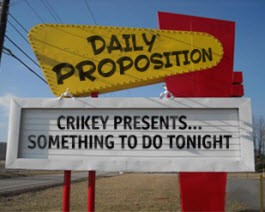
What is “Australian” writing? In the inaugural Miles Franklin award oration on Tuesday, Peter Temple gave the question a red-hot go. Temple, the first-ever author to win the award for a crime novel, in this case Truth, addressed the crowd with an oration entitled: “Reading the country: thoughts on becoming an Australian writer”. His opening remarks began by noting Franklin’s own words: “Without an indigenous literature, people can remain alien on their own soil.”
Temple also added some (damn funny) notes of his own, describing his view of Australia as a self-effacing nation prone to glorifying failure. As a country, he argued, Australia aggrandises the failed explorers Burke and Wills and Ludwig Leichhardt. We honour the tragedy that took place at Gallipoli in memorial days and statues; even Canberra came in for a good-natured dig as a pinnacle of a failed attempt at glory.
So with Franklin’s and Temple’s comments in mind, how should Australians read our native literary history? What is and isn’t excluded? Are we restricted to purely Australian settings, such as in Franklin’s own My Brilliant Career, or the often-adored beach culture associated with Tim Winton’s work? If it hasn’t happened already, the Australian literature scene could even see the emergence of city-based styles begin to emerge. If Temple’s scorching portrayal of Melbourne is anything to go by, we can expect that certain styles of writing may apply as much to Melbourne, Sydney or Perth, for example, as they do to various sections of New York City. This includes the iconic Wall Street and Fifth Avenue, with their accompanying exposés on hedonistic lifestyles glamorised in books such as Randall Lane’s The Zeroes and Candace Bushnell’s Sex and the City.
A reader could arguably choose books that reflect their own idea of Australian culture, but this still leaves them without a unifying “Australian” feature. While you may share Peter Temple’s conception of Melbourne in Truth as a dystopia with a “long memory” that neither forgives nor forgets, you could also empathise with Chloe Hooper’s portraiture of a Palm Island community in The Tall Man, Helen Garner’s seventies cityscape in Monkey Grip or Benjamin Law’s dysfunctional Asian-Australian family portrait in The Family Law. All of these writers have been identified as “Australian” writers, yet their subjects and styles vary so widely that it may be impossible to determine a unifying trait.
Ironically, that could just be Australia’s calling card; “Australian” literature is such a wildly flexible term that we may have licence to define ourselves by what we are not. Few countries have such a luxury.







Read something ‘Australian’. Even more challenging, read something Australian, critically well-regarded and which sells in conspicuous numbers here and internationally. Who does that leave? Try one of the pack of authors who mostly never get a mention in the MSM:
Damien Broderick
Trudi Canavan
Kylie Chan
Cecilia Dart-Thornton
Stephen Dedman
Sara Douglass
Greg Egan
Jennifer Fallon
Kate Forsyth
Traci Harding
Lian Hearn
Ian Irvine
Maxine McArthur
Sean McMullen
Sophie Masson
Karen Miller
Garth Nix
Marianne de Pierres
Joel Shepherd
Tony Shillitoe
Sean Williams
and so on …
OMG, not another scrabbling search for the ‘oly gryle of Australian essentialism? Will this knickertwisting angst ever end? Soooo provincial.